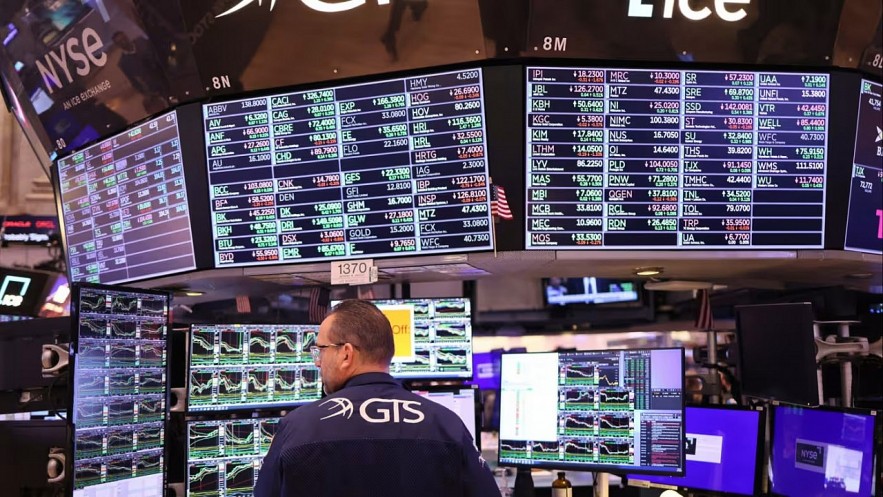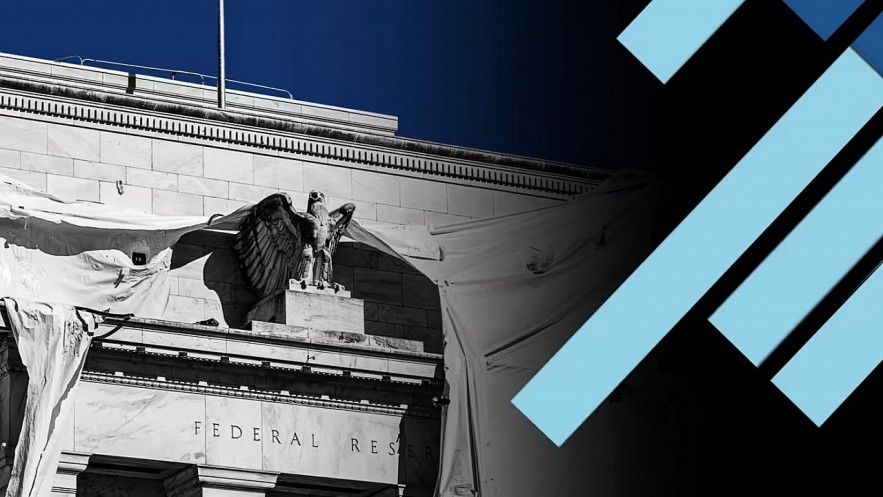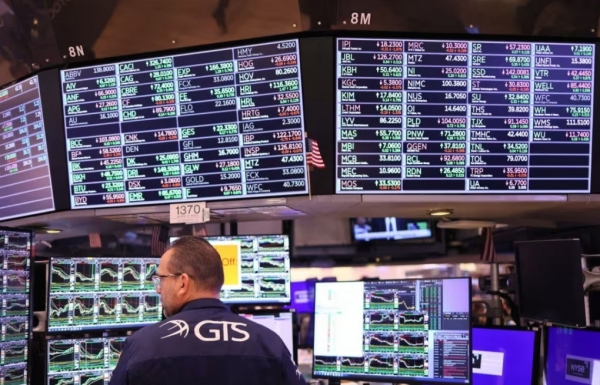(TBTCO) – Global stocks ended their biggest monthly gain in three years, as investors flocked to risk assets on growing confidence that the US Federal Reserve (FED) and banks Other major central governments are about to win the war against inflation.
 |
| Ending November 2023, all three US stock indexes ended November at least 8% higher, breaking a three-month losing streak. Photo: Getty Images |
All three US stock indexes increased sharply
The MSCI All-Country World index rose nearly 9% throughout November 2023, marking the global stock index’s best month since November 2020 as news of a breakthrough in the race to develop a vaccine broke out. Covid-19 caused stocks to skyrocket.
In the US, all three major stock indexes ended November at least 8% higher, breaking a three-month losing streak. The tech-dominated Nasdaq Composite ended the month up 10.7%. The S&P 500 rose 0.4% on November 31, ending November 8.9% higher.
The blue-chip index, on November 31, increased 1.5%, equivalent to 520 points, having its best month since October 2022, increasing 8.8% to its highest closing level since January 2022.
|
Oil prices fell despite the Organization of the Petroleum Exporting Countries and its market allies agreeing to further reduce output to support prices. U.S. oil futures fell $1.90 a barrel to close Thursday at $75.96, down 6.2% on the month. Major indexes in Asia and Europe were mostly up in November. On Thursday, Japan’s Nikkei 225 and Stoxx Europe 600 each rose 0.5% to end their respective monthly gains. are 8.5% and 6.4%. Hong Kong’s Hang Seng ended November 0.4% lower. |
November’s gains were accompanied by a bond rally that boosted yields on the 10-year note. The composite bond index rose 4.8% this month, representing its biggest gain since the mid-1980s.
The increase comes alongside increased bets that interest rates in the US and euro zone have peaked and will be cut in the first half of next year. Investors got further motivation on Thursday (November 31) when euro zone inflation in November fell to 2.4%, much lower than forecast and the slowest pace since November. July 2021, pushing Europe’s Stoxx 600 up 0.5%.
Torsten Slok – chief economist at Apollo Investment Company, said that the market now believes that inflation is no longer a problem, and the FED is no longer worried, accordingly, risky assets will perform better. “The important question,” he added, “is whether that chain of thought is correct?”
Since the beginning of last year, the Fed has been trying to bring inflation back to its 2% target. Their most aggressive campaign to raise interest rates in decades was responsible for last year’s painful stock market decline.
Wylie Tollette – chief investment officer of Franklin Templeton Investment Solutions, said that rising interest rates used to be “a dark cloud covering risky assets”. Higher interest rates pressure stocks by reducing the relative attractiveness of companies’ future earnings and increasing the appeal of safe assets such as government bonds.
They also increase costs and default risks for higher-risk borrowers. Now, however, “most market participants — including us — believe the Fed may actually be done” and will succeed in controlling inflation without triggering a recession. deep recession, Tollette added.
Home Investing in FED expectations and the ECB soon cut interest rates
This week, Christopher Waller, one of the Fed’s most hawkish policymakers, said he was “increasingly confident” that monetary policy was on the right track, and that, if inflation continued to fall, , “you can start lowering policy rates because of lower inflation”.
 |
| Investors poured money into US corporate bonds because they believed FED interest rates had peaked. |
| Wall Street predicts the FED will cut interest rates in early 2024 |
Futures markets are pricing in the first quarter-point rate cut in May 2024. That confidence reflects recent data showing consumer price growth is slowing and the job market is cooling, even as overall economic activity remains steady.
According to Tim Murray, multi-asset strategist at T Rowe Price, this combination paints a picture of “a Goldilocks environment. We’re not in a recession, but we also don’t have an economy recovering so quickly that the Fed has to put on the brakes” to prevent inflation from returning.
| In Europe, investors predict the European Central Bank (ECB) will start cutting interest rates early next year. Still, officials remained cautious in declaring victory, warning that inflation could rise slightly in the coming months. |
The new level of risk in the stock market has been reflected in the corporate bond market. According to data group EPFR, nearly $17 billion flooded into corporate bond funds in November, the strongest monthly capital inflow since July 2020. That demand has driven down borrowing costs for the riskiest companies.
The average yield on high-rated debt, as measured by the BofA Ice index, fell from 9.5% in late October to 8.56% late Thursday, the biggest monthly decline since from July 2022. Meanwhile, the Vix volatility index – Wall Street’s fear gauge – is hovering around its lowest level since before the pandemic, another sign of investor optimism.
The S&P 500 is now just 5% away from its all-time high reached early last year. Many analysts and investors predict the index will surpass that level in 2024. However, some investors in the market worry that the recovery has gone too far. Major asset managers such as Vanguard and Robeco have recently warned that valuations are being stretched.
Analysts predict corporate profits will grow more than 10% next year, but weaker-than-expected economic growth could weigh on earnings and depress stock values. At the same time, Apollo’s Slok warned, stronger-than-expected economic data could also “affect the current recovery” by raising concerns that the Fed will need to keep interest rates higher for a while. longer. “It’s too early for the market to recover so strongly,” he said./.
